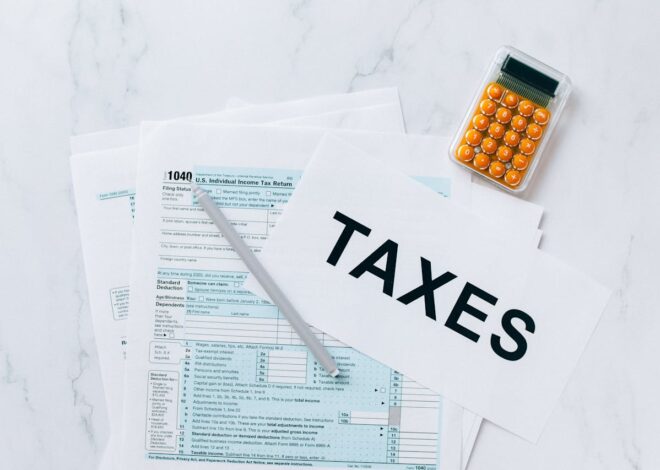
Debt Consolidation Loans: A Solution to Multiple Debts
Introduction to Debt Consolidation Loans
In today’s fast-paced world, managing finances effectively can be a challenge. With the cost of living on the rise, many individuals find themselves juggling multiple debts, from credit cards to personal loans. This is where debt consolidation loans come into play.
A debt consolidation loan is a financial solution designed to simplify the management of multiple debts. Instead of dealing with several creditors, you take out one loan to pay off all your existing debts, leaving you with just one monthly payment to manage. This can not only make your debts more manageable but also potentially reduce the amount of interest you’re paying.
Debt consolidation loans are offered by various financial institutions, including banks and credit unions. They come in two main types: secured and unsecured. Secured loans require collateral, such as your home or car, while unsecured loans do not.
While debt consolidation loans can be a lifeline for those struggling with multiple debts, they are not a one-size-fits-all solution. It’s important to understand how they work, the benefits they offer, and the potential risks involved. This understanding will help you make an informed decision about whether a debt consolidation loan is the right solution for you.
In the following sections, we’ll delve deeper into the causes and consequences of multiple debts, how debt consolidation loans work, their benefits, potential risks, and finally, help you decide if a debt consolidation loan is right for you. Stay tuned!
Understanding Multiple Debts: Causes and Consequences
In today’s consumer-driven society, it’s not uncommon for individuals to accumulate multiple debts. These can come in various forms, such as credit card debt, student loans, car loans, and personal loans. The causes for this accumulation are multifaceted, ranging from necessary expenses like education and housing, to discretionary spending on lifestyle and leisure.
The consequences of multiple debts can be severe and far-reaching. On a personal level, it can lead to financial stress and anxiety, making it difficult to plan for the future. It can also impact one’s credit score negatively, making it harder to secure loans or credit in the future.
On a macroeconomic level, high levels of consumer debt can have broader implications for the economy. When individuals are heavily indebted, they have less disposable income to spend on goods and services, which can slow economic growth.
However, it’s important to remember that not all debt is bad. When managed responsibly, debt can be a useful tool for achieving personal and financial goals. The key is understanding how to manage it effectively, and that’s where debt consolidation loans can come in handy.
How Debt Consolidation Loans Work
Debt consolidation loans work by combining multiple debts into a single loan with one monthly payment. The process begins when you apply for a loan from a bank, credit union, or other financial institution. The amount you request should be enough to pay off all your existing debts.
Once approved, the funds from the debt consolidation loan are used to pay off your existing debts. This leaves you with just the debt consolidation loan to repay. Instead of having to keep track of multiple payments and due dates, you now have just one monthly payment to manage.
The interest rate on a debt consolidation loan is typically fixed, which means it won’t change over the life of the loan. This can be beneficial as it makes your monthly payments predictable. However, the rate you’re offered will depend on various factors, including your credit score and the terms of the loan.
It’s important to note that while a debt consolidation loan can simplify the repayment process, it doesn’t reduce the total amount you owe. You’re still responsible for repaying the full amount of your debt, but now it’s consolidated under one loan.

Benefits of Debt Consolidation Loans
Debt consolidation loans offer several advantages that can make managing multiple debts easier and more efficient. Here are some of the key benefits:
- Simplified Debt Management: One of the primary benefits of a debt consolidation loan is the simplification of your debt management. Instead of juggling multiple payments to various creditors each month, you only have to make a single payment. This can reduce stress and make it easier to keep track of your debts.
- Lower Interest Rates: Debt consolidation loans often come with lower interest rates than the combined rates of your original debts. This means that over the life of the loan, you could save a significant amount of money on interest payments.
- Fixed Repayment Schedule: With a debt consolidation loan, you’ll have a fixed repayment schedule. This means you’ll know exactly when your debt will be paid off, which can provide a light at the end of the tunnel for those feeling overwhelmed by their debt.
- Improved Credit Score: If managed responsibly, a debt consolidation loan can help improve your credit score. By making regular, on-time payments on your loan, you demonstrate to creditors that you are capable of managing your debts, which can positively impact your credit score.
- Potential for Lower Monthly Payments: Depending on the terms of your debt consolidation loan and the amount of debt you consolidate, you may be able to lower your total monthly payment. This can free up cash flow and make it easier to meet your other financial obligations.
Remember, while a debt consolidation loan can offer several benefits, it’s important to understand the potential risks and downsides as well. Always consider your personal financial situation and consult with a financial advisor if needed before deciding if a debt consolidation loan is right for you
Potential Risks and Downsides of Debt Consolidation Loans
While debt consolidation loans can provide several benefits, they also come with potential risks and downsides that should be carefully considered. Here are some of the key points to keep in mind:
- Longer Repayment Period: While a debt consolidation loan might lower your monthly payment, it could also extend the length of time it takes to pay off your debt. This means you could end up paying more in interest over the life of the loan.
- Risk of Accumulating More Debt: If you use a debt consolidation loan to pay off credit cards or other revolving debt, you might be tempted to start using those credit lines again. This could lead to accumulating more debt on top of the consolidation loan.
- Potential Damage to Credit Score: If you miss payments or default on the consolidation loan, it could negatively impact your credit score. It’s important to ensure you can afford the new loan payments before proceeding.
- Secured Loans Risk: Some debt consolidation loans are secured, meaning they require collateral such as your home or car. If you default on the loan, you risk losing that collateral.
- Fees and Costs: Some debt consolidation loans come with fees, such as origination fees or prepayment penalties. These costs should be factored into your decision.
Remember, a debt consolidation loan is a financial tool that can help manage multiple debts, but it’s not a solution for everyone. It’s important to understand your personal financial situation and consider all options before deciding if a debt consolidation loan is right for you.
Concluding Thoughts: Is a Debt Consolidation Loan Right for You
Deciding whether a debt consolidation loan is right for you is a personal decision that depends on your unique financial situation. Here are some factors to consider:
- Your Financial Discipline: Debt consolidation loans can be beneficial if you are disciplined about making your payments and avoiding additional debt. If you’re worried about falling back into old habits, it might not be the best solution.
- Your Debt Amount: If your debt is large, a debt consolidation loan might help you manage it more effectively. However, if your debt is relatively small, you might be better off paying it off directly.
- Your Credit Score: Your credit score can impact the interest rate you’re offered on a debt consolidation loan. If you have a good credit score, you’re likely to get a better rate. If your credit score is low, the interest rate might be higher, which could make the loan less beneficial.
- Your Long-Term Financial Goals: Consider how a debt consolidation loan fits into your long-term financial goals. If it helps you get out of debt faster and aligns with your goals, it could be a good option.
Remember, it’s important to do your research and consider all your options before deciding on a debt consolidation loan. Consulting with a financial advisor can also be helpful in making this decision. Ultimately, the choice is yours. Make sure it’s one that will benefit your financial health in the long run.








